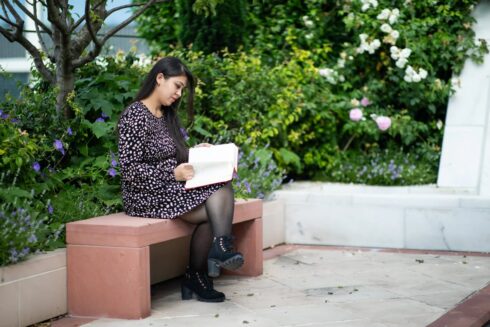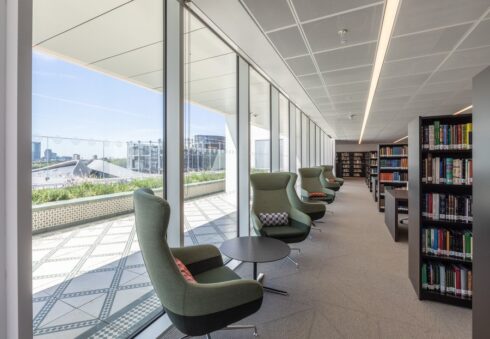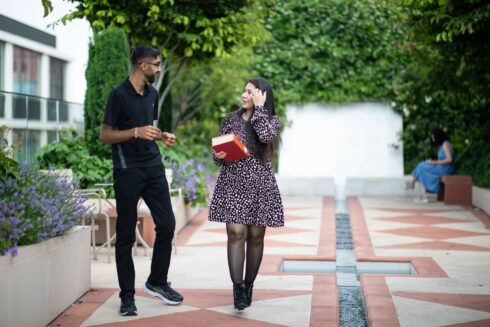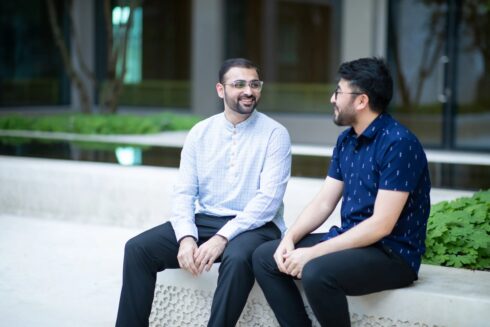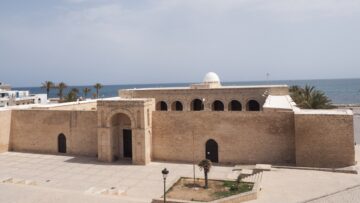Graduate Programme in Islamic Studies and Humanities
-
Status
Closed -
Date
16 Sep 2024 -
Location
London
Pre-sessionals
New students attend an induction and pre-sessional academic programme for around five weeks. Pre-sessionals introduce key skills and ways of thinking in the Humanities and Social Sciences, combined with practical orientations to life in London and at the IIS. Students arrive in London to begin pre-sessionals in mid-August, ahead of the first term of MA study which commences in September.
There are four key areas in which you will develop:
- A civilisational understanding of Islam. Demonstrate a systematic advanced understanding and knowledge of Islam from a civilisational perspective.
- Critical awareness of key debates and thinkers. Demonstrate systematic knowledge and critical awareness of the key debates and thinkers (historical and contemporary) in the field of Islamic studies.
- Critical awareness of challenges in context. Demonstrate a critical awareness of challenges facing contemporary Muslim societies in their diverse historical, political and socio-economic contexts.
- Understanding methods. Demonstrate a systematic and comprehensive understanding of contemporary methodologies for the study of Islam in lived contexts.
- Making critical sense of materials. Critically assess data and evidence from primary and secondary sources, and solve conflicts of facts and interpretations commensurably with the level expected of Master’s graduates.
- Understanding materials critically. Employ critical and at times original approaches and question established knowledge on the basis of reasoned interpretations of sources and evidence.
- Integrating materials. Integrate findings from multiple sources in order to demonstrate and advance a critical understanding of topics under discussion.
Making and reflecting on conclusions. - Make reasonable and substantiated conclusions independently in the light of research undertaken and evidence reviewed and reflect on the implications of those and potential future directions.
- Finding materials. Locate relevant materials and gather research data and/or evidence responsibly and ethically for the purpose of exploring and understanding a topic and/or preparing for assessment.
- Interpreting materials. Summarise viewpoints and arguments from various sources of data and/or evidence, synthesising those where appropriate.
Integrating interpretive approaches. - Integrate skills and/or approaches from different disciplinary areas for the purpose of exploring and understanding a topic/subject area in comprehensive and, where possible, original ways.
- Self-assessment and refining work produced. Judging the merit of own work for the purpose of assessing its validity and appropriacy with regard to the subject matter, discipline and task at hand.
- Communication. Communicate knowledgeably and critically in writing and speaking for the purpose of disseminating and contributing to the production of knowledge and to enable active participation in events such as seminars, conferences and symposia where current subject knowledge and approaches are being disseminated and debated.
- Working independently. Demonstrate skills of research (finding and working with materials) and managing one’s own learning in the service of working independently and responsibly.
- Working with others. Work with others for the purpose of gathering and interpreting information, showing due regard for ethical considerations.
Field research project
The Field Research Project is an integral part of the programme which can also serve as a basis for continued study or career development. Students will conduct research during the summer of their second year and produce an original dissertation.*
A Research Supervisor is allocated to each student, to guide them in planning, preparing, conducting and writing up the dissertation. A year-long module in Research Design and Methods provides students with the tools to plan and conduct an empirical study. During this preparatory module, students will submit a project proposal for their field research, and approved projects will receive modest funding to contribute to the cost of travel to and from the place of research and other project-related expenses.
* It is the students’ responsibility to obtain a Visa for all excursions abroad. In the event of travel restrictions due to unforeseen circumstances including but not limited to a global pandemic such as COVID-19, alternative arrangements will be made to take place in the UK or in an online environment. In light of the Covid-19 pandemic, the field research component may need to be converted into a desk-based research, if field work is no longer feasible.
Educational field trip
GPISH students are taken on a field trip to a Mediterranean country in Year 2.* The trip is focused on visits to Muslim architectural monuments of the Islamic ‘West’. The field trip also allows students to witness the contemporary use of the architectural sites, developing their visual literacy and contributing to learning about the formation of political and religious identity, art and architecture. With the help of an academic lead, the field trip complements in-house academic modules, bringing to life the places students have read about. Past trips have taken students to Spain to tour the European heritage of al-Andalus, including the Great Mosque of Cordoba, the Madinat-al-Zahra Museum, and the magnificent palaces and gardens of Alhambra.
* It is the students’ responsibility to obtain a Visa for all excursions abroad. In the event of travel restrictions due to unforeseen circumstances including but not limited to a global pandemic such as COVID-19, alternative arrangements will be made to take place in the UK or in an online environment.
Leadership skills workshop
The objective of this workshop is to start integrating learning with the development of leadership skills congruent with today’s globalised and highly mobile workplace. Practical leadership skills for communicating, influencing and motivating across cultures and deepening individual impact within society are linked with theoretical knowledge.
Language immersion
Supplementing language training at IIS is a four-week language immersion programme in Jordan or Iran at the end of Year 1. This is an opportunity for students to immerse themselves in the language and culture of an Arabic-/Persian-speaking country.*
* It is the students’ responsibility to obtain a Visa for all excursions abroad. In the event of travel restrictions due to unforeseen circumstances including but not limited to a global pandemic such as COVID-19, alternative arrangements will be made to take place in the UK or in an online environment.


